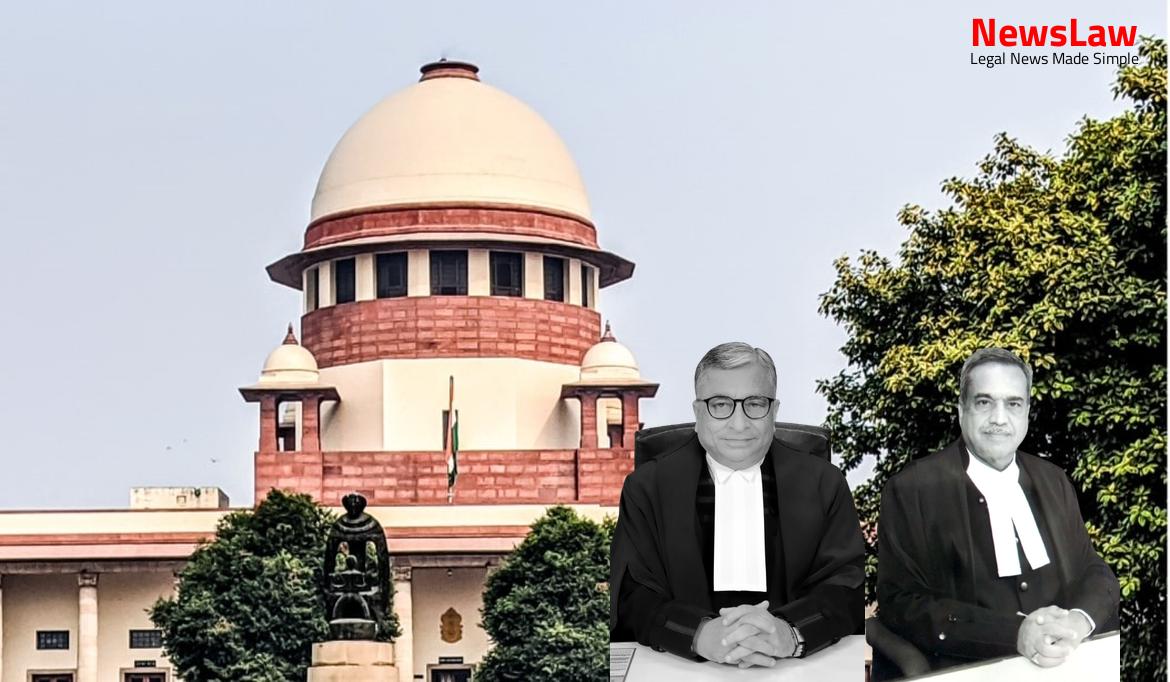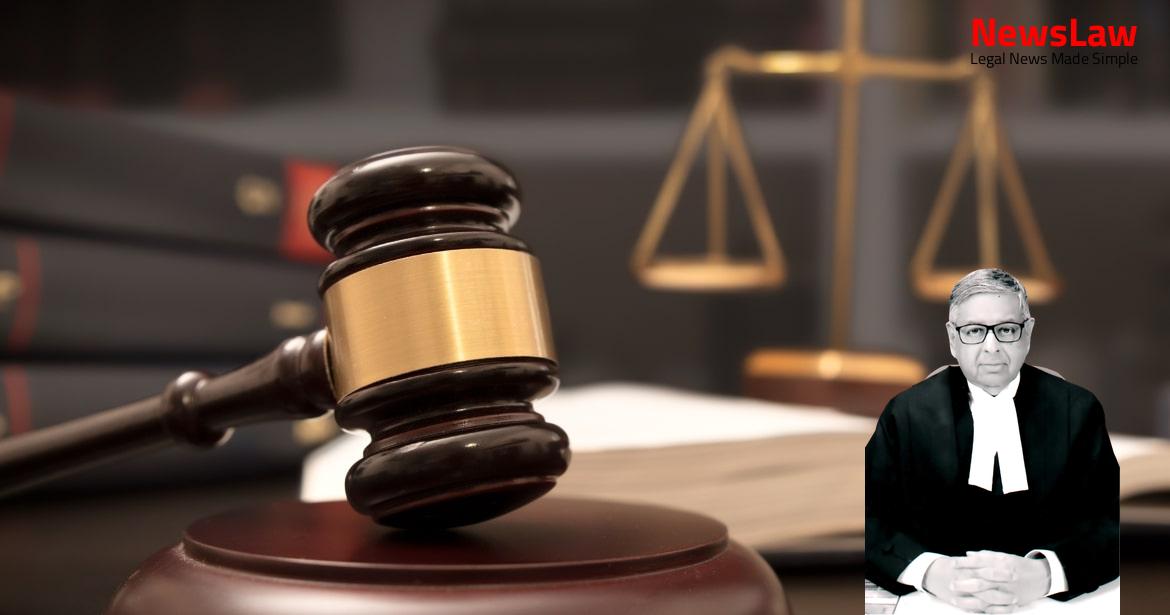Delve into the complexities of component classification in a recent legal case focusing on Modvat credit eligibility. The court’s thorough legal analysis sheds light on the interpretation of rules and definitions in taxation law. Understanding the significance of proper classification of components is paramount in ensuring compliance with the law and avoiding penalties. Stay tuned to unravel the intricacies of this case and its implications on taxation practices.
Facts
- The Adjudicating Authority disallowed the credit amounting to Rs. 1,71,60,376/- wrongly availed by the appellant during March 2000.
- The disallowed credit included Modvat credit availed by the appellant on ‘Guide Car’.
- The Adjudicating Authority imposed a penalty of Rs. 5,00,000/- under Rule 173Q of the Rules 1944.
- Appellant preferred an appeal before the learned Tribunal against the Order-in-original.
- The Tribunal upheld the demand of Rs. 45,86,664/- for Modvat credit on ‘Guide Car’ and reduced the penalty to Rs. 1,00,000/-.
- The dispute revolves around Modvat credit claimed on ‘Guide Car’ by the appellant.
- The appellant responded to the show cause notice and was given a personal hearing.
- The show cause notice stated that Modvat credit on ‘Guide Car’ was not available under Chapter sub-heading 8603.00 of the Central Excise Tariff Act.
- Adjudicating Authority held that as the supplier classified ‘Guide Car’ under Chapter sub-heading 8603.00, the appellant cannot claim Modvat credit as per Rule 57Q of the Central Excise Rules.
- Appellant argued that ‘Guide Car’ should be classified under Chapter sub-heading 8428.90 and not 8603.00.
Also Read: Challenging Legal Presumptions in Negotiable Instrument Cases
Issue
- The appellant has claimed Modvat credit under Rule 57Q of the Rules 1944 on ‘Guide Car’.
Also Read: Legal Analysis of Admission Irregularities in Educational Institutions
Arguments
- It is argued on behalf of the appellant that the ‘Guide Car’ should not be classified under Chapter sub-heading 8603.00.
- The appellant believed that ‘Guide Car’ should fall under Chapter sub-heading 8428.90 and hence there was no suppression or mala fide intention in claiming Modvat credit.
- The appellant contends that the ‘Guide Car’ can be considered a component of the Coke Oven Battery and thus should be eligible for capital goods credit.
- The respondent opposes the appeal, stating that the classification of goods done by the supplier should prevail, thereby implying that the ‘Guide Cars’ should remain classified under heading 86.03.
- In the alternative argument, it is mentioned that even if ‘Guide Cars’ are classified under 8603.00, they should still be considered for capital goods credit as a component of the Coke Oven Battery.
- The appellant acknowledges that ‘Guide Car’ was classified under 8603.00 by the appropriate authority post the supply, but does not press the argument for prospective classification under 8428.90.
- The appellant relies on the decision in the case of Collector of Central Excise, Baroda v. Cotspun Limited (1999) 7 SCC 633 for support.
- Learned counsel for the Revenue heavily relied on the decision of the Court in Saraswati Sugar Mills v. Commissioner of Central Excise, Delhi (2014) 15 SCC 625 regarding the expression ‘component’.
- The learned counsel prayed for the dismissal of the present appeal based on the above submissions and the reliance on the mentioned decision.
- The appellant was argued to not be entitled to Modvat credit on ‘Guide Cars’ under Rule 57Q of the Rules 1944.
Also Read: Quashing of Enhanced Tuition Fee in Private Medical Colleges
Analysis
- The meaning of the expression ‘component’ in common parlance is that it is an integral part necessary for the constitution of the whole article.
- In order to determine whether an article is a component part of another article, the article’s use and its necessity in the complete article need to be considered.
- An article being a component part does not necessarily require it to retain its individual identity once it becomes part of the whole article.
- The Adjudicating Authority and the Tribunal were correct in denying Modvat credit for ‘Guide Car’ as a component of the Coke Oven Battery.
- The penalty imposed on the appellant was not justified given the genuine belief of the appellant regarding the classification of the goods.
- ‘Constituent’ means serving to form or compose as a necessary part.
- The expression ‘components’ is not defined under the Act.
- Reference can be made to dictionaries to understand the meaning of the expression ‘components’.
- In Webster’s Comprehensive Dictionary and Advanced Law Lexicon, the word ‘component part’ is defined as ‘something which becomes an integral part of the goods in question by losing its physical and economic distinctiveness.’
Decision
- The demand of Rs. 45,86,664/- for Modvat credit on ‘Guide Car’ confirmed by the Tribunal
- The appeal dismissed regarding the confirmation of demand for Modvat credit on ‘Guide Car’
- Penalty of Rs. 1,00,000/- imposed by Adjudicating Authority modified by Tribunal is quashed and set aside
- The present appeal partly allowed with no order as to costs
Case Title: M/S STEEL AUTHORITY OF INDIA LTD. Vs. COMMR.CEN.EXCISE AND CUS.BHUBANESHWAR (2022 INSC 967)
Case Number: C.A. No.-007269-007269 / 2009



